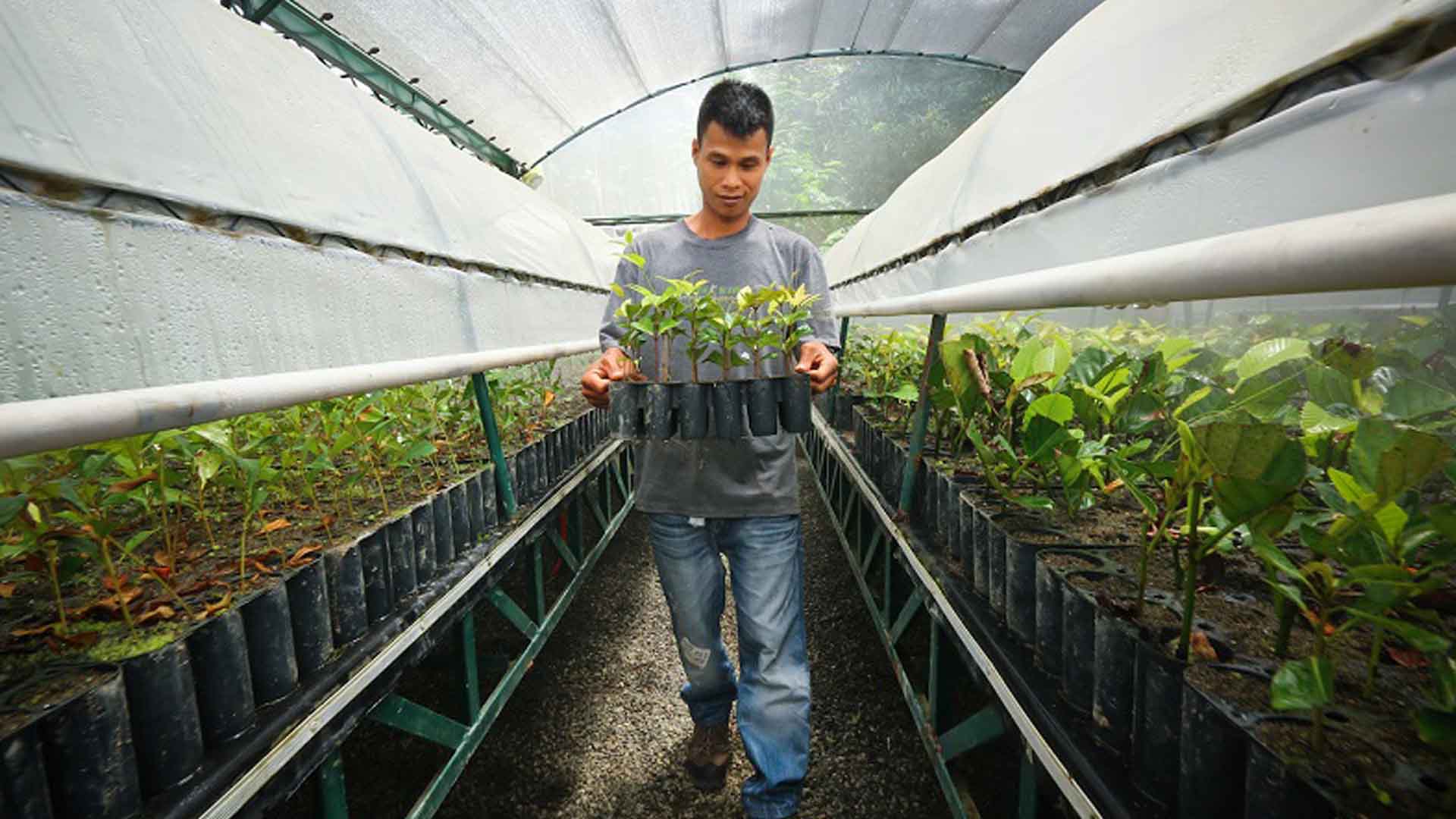As countries around the world endeavor to prevent the global climate crisis from reaching catastrophic levels by 2030, reforestation remains a basic but vital strategy in mitigating climate change. A study by academic journal Science revealed that one billion hectares of forest could reduce 300 gigatons of carbon or 25 percent in the atmosphere.
In the Philippines, restoring forest cover is not only a matter of climate solution but of environmental survival. According to the Department of Environment and Natural Resources’ Forest Management Bureau (DENR–FMB), every year, the country loses 47,000 hectares of forest cover. Around 1.2 million hectares of denuded and degraded forest lands of the country need to be rehabilitated by 2022 to prevent landslides and ensure water availability.
In the private sector renewable energy leader Energy Development Corporation (EDC) is at the forefront in responding to these challenges, leveraging its flagship environmental program BINHI to reforest degraded lands, rescue vanishing native trees, develop ecotourism areas and provide livelihood to local communities.

Since its launch in 2011, EDC’s BINHI has successfully restored 9,500 hectares of forest land with 96 premium native trees species under threat of extinction. This year, the program is expanding its scale to increase the Philippines’ forest cover. In its recent celebration of BINHI Day, EDC’s facilities across the country—the Mt. Apo Geothermal Project (MAGP), Leyte Geothermal Project (LGP), the EDC-Burgos Wind Power Corporation (EBWPC), Bacon-Manito Geothermal Project (BMGP), Southern Negros Geothermal Project (SNGP) and EDC Head Office —rallied employees, community members and other institutional partners to plant more trees in their respective areas. A total of 10,578 trees were planted across the different sites.
BINHI’s partners for these tree planting activities included the Department of Environment and Natural Resources (DENR) and the Community Environment and Natural Resources Offices (CENRO), local government units, schools, barangays and even volunteers from the military.
The BMGP and MAGP power plants also engaged in river cleanup activities in their respective areas of operation. The MAGP adopted Marbel and Matingao rivers in Barangays Balabag and Ilomavis in Kidapawan City, while the BMGP implemented cleanups along Rizal River in Barangay Rizal, Sorsogon City.
“The scale and breadth of our reforestation efforts is proof that business and the environment can co-exist sustainably. Doubling our efforts to restore our forests can take us a long way in protecting our planet and securing it for the generation who will bear the brunt of our inaction,” said Atty. Allan V. Barcena, head of EDC’s Corporate Social Responsibility and Public Relations Group.
Earlier this year, the BINHI program also joined a global effort to identify, assess, and protect native trees species. Botanic Gardens Conservation International (BGCI), the world’s largest plant conservation network and the International Union for Conservation of Nature (IUCN)’S secretariat, tapped EDC as the first Philippine partner for its Global Tree Assessment program (GTA).
BGCI aims to create the first global list of tree species and their conservation assessments by 2020. To date, only 25,000 of the world’s 80,000 tree species have global or national assessments for their risk of extinction. As BGCI’s partner, EDC will gather information on 800 Philippine endemic tree species.
BINHI also won the best corporate social responsibility (CSR) project in environment at the first CSR Guild Awards this year, hosted by the League of Corporate Foundations.







